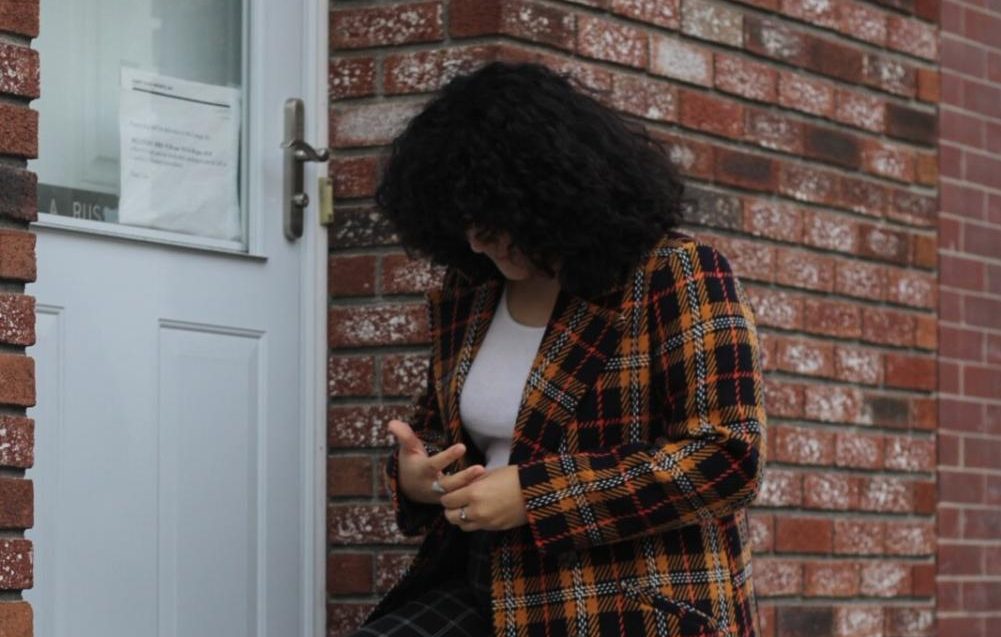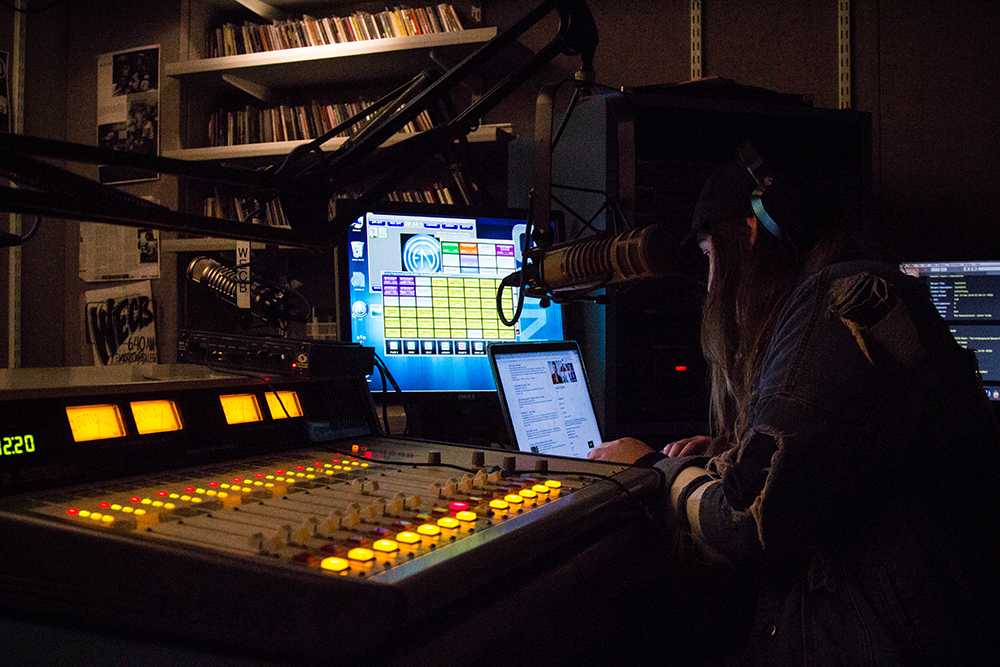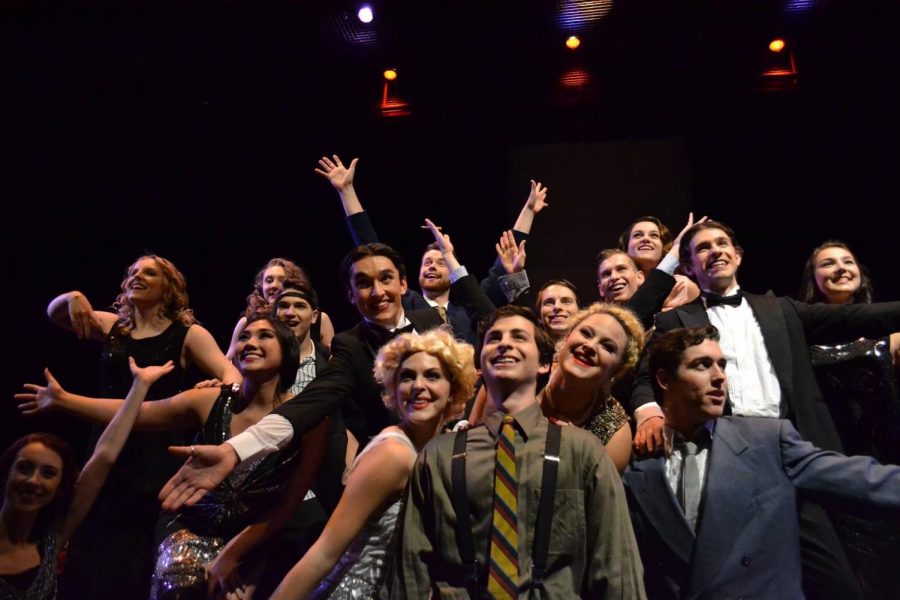Emerson’s student organizations are facing a herculean task this semester: to reimagine their clubs, most of which depend on in-person interaction, so they abide by COVID-19 safety guidelines.
Pandemic-era restrictions slash room capacities to 20 to 25 percent of their previous limits, meaning many on-campus meeting spaces for student orgs can now only hold between two and six students. For most of the 80-plus organizations, this precludes most, if not all, in-person meetings, meaning leaders have had to work with Student Engagement and Leadership towards a complete or partial shift to virtual events, meetings, and recruitment.
Zoom is the platform of choice for full organization meetings, which some groups hold weekly.
Emerson Hillel, an organization for Jewish students, holds weekly Shabbat services over Zoom, as well as virtual services for the High Holidays. They’ve also engaged remotely with Hillels at other local schools, like Simmons University and Boston College.
“As much as I would love for it to be in person, and I think everyone else would, too, and we’re definitely missing out on that, still having that community over Zoom is better than nothing at all,” Hillel President Rachel Tabin said.
Like many organizations, they’ve also utilized social media to advertise their one recurring in-person event: food pick-ups. Food is a culturally significant part of the organization’s typical meetings. They have coordinated this semester with Bon Appétit to pass out individually packaged kosher meals on Shabbat in the Lion’s Den, as well as bagels and cream cheese in 172 Tremont.
“[It’s] good to have at least some face-to-face contact, even if it’s just for like two seconds,” Tabin said. “People right now are in need of this community, and I think that Hillel is usually a place where people can have that, and we really don’t want that to go away.”
When there is physical contact in organizations, even if it’s limited, there are additional guidelines. em Magazine, a lifestyle print magazine published every semester, can only have six people on a photoshoot set this semester, including just two models at a time. The models, who primarily wear their own clothes and put on their own makeup for the shoot, are allowed to take their masks off for photos but everyone else on set must keep them on. As a result, the magazine has pivoted more toward illustration and landscape photography.
“There’s still a lot of options to go around and still have that creative outlet,” Eileen Polat, Editor-in-Chief of em Magazine, said.
Launch parties, which many on-campus publications hold to celebrate the printing of an edition, will be all but impossible this semester. Meier said the college is looking into setting up magazine racks in buildings across campus for publications to distribute their work.
“This semester, we can’t, unfortunately, have a launch party for everyone to celebrate their work on campus and enjoy that time together,” Polat said. “We’re still making it work.”
Meier said SEAL has helped organizations navigate the new virtual terrain by sharing workplace management systems and Zoom techniques. He added that while organizations have received funding at the same level as last year, the appeals budget, where organizations can request additional money, is far smaller. Meier said this is a consequence of a lower undergraduate population to pay the student services fee.

Other clubs, like The Girlie Project sketch comedy troupe, have notably scaled back operations. The organization has only six active members scattered all over the country, and has decided to view the fall as an “adjustment semester,” choosing not to recruit new members.
“To feel like a group, you kind of have to be together,” Girlie Project President Isa Moon said. “You feel it in a room. When everybody is laughing, there’s a certain energy that just makes you want to keep going.”
The Girlie Project typically has two shows per semester, but Moon said that since there is no end in sight to the restrictions on theatre usage, they’re not planning any shows. Theater spaces on campus, including the Black Box, the Paramount, and the Bill Bordy, are reserved for classes, and are unavailable for their usual extracurricular use. Few spaces will be available for performances this semester—including studios in the Little Building’s Student Performance Center and the multi-purpose room in 172 Tremont—and demand will likely be high.
Moon said the troupe meets occasionally over Zoom, but she’s not enforcing meetings or deadlines.
“For this semester, Girlie is not your priority, it’s your outlet,” Moon said she told her troupe.
Approximately 10 organizations have chosen to opt for a newly offered leave of absence this semester, Jason Meier, director of SEAL, said. Organizations that choose to take a leave will not see any complications with their funding or affiliation with the Student Government Association this year, Meier said.
“Student groups either stepped up or they didn’t,” he said. “If you are overwhelmed, and you truly can’t figure this out, no problem. But if you want to figure it out, we’re here.”
WECB, one of the college’s student-run radio stations and live music promoter, typically depends on students to host shows live from their studio in the Ansin Building’s basement. They’ve pivoted to live, fully remote programming this semester, with DJs calling into the studio’s computer to stream their shows during a predetermined time slot.
“I’m sure people do miss the space,” Owen Murray, one of WECB’s programming directors, said. “People do seem excited to be able to do their shows still, even if it is different.”
In place of their usual live shows throughout the semester, Murray said WECB is putting on Instagram Live concerts with Emerson musicians, as well as holding Zoom workshops on audio techniques. In July, they held a benefit concert on the live streaming platform Twitch for Families for Justice As Healing and the Marsha P. Johnson Institute that raised over $1,200.

Murray said the station received a typical amount of DJ applications, but he’s disappointed that new members won’t learn how to use the DJ board or microphones. The new setup, however, opens up the possibility for students in different time zones to put on shows.
Some studio spaces on campus are still open for use but at a curtailed capacity. Emerson Channel, a 24/7 television network, is pre-taping or remotely taping most of their shows, which usually broadcast live from the Tufte Television Studios. Production crew numbers are severely reduced. If shooting in the studio, crews are allowed six-hour blocks with an hour break in the middle. Productions are limited to 14 people per shoot, and masks must be worn at all times.
“It’s really forcing people to think creatively and not think so much in a maximalist style, but to really think critically about what’s essential to putting on a good production,” Simona Riccardi, director of programming, said.
Emerson Channel Sports, which usually live-streams Emerson sports games, will use their equipment this semester to help performance organizations broadcast their shows live.
“Even though they can’t have a traditional audience, their work still gets seen by students and the greater world,” Riccardi said. “People can kind of get trapped in their org bubbles, and I just personally don’t find that to be the case anymore.”
Riccardi has put a greater emphasis on members keeping in touch with one another virtually to ensure duties or responsibilities don’t fall through the cracks.
“I feel like we’ve really had to step it up in terms of our efficiency,” Riccardi said. “I think that that’s truly prepared people for the real world.”
The Musical Theatre Society, one of the performance organizations using Emerson Channel Sports’ live-streaming equipment, is producing one musical this semester as opposed to their typical five. “First Lady Suite,” a show about the lives of four American first ladies, has a cast of about 10. MTS will produce the show by recording each of the performers singing individual tracks, and then film the actors together performing and speaking their lines in one of the television studios.
“If anything, the pandemic has given us a lot of time to think—we redid our whole constitution and our whole board structure in the spring,” Charlotte Palmucci, artistic director of MTS, said. “In reality, it’s of course been disappointing not to be in person and not to be doing in-person shows, but also really great and I feel like we are really moving the organization forward in the extra time that we have.”

To advertise virtual events, Meier said there are plans to install bulletin board space in the classroom section of the Paramount building for more organizations to post flyers.
Accapellics Anonymous had to reinvent their audition and rehearsal process this fall. Their treasurer, Lea Tatoris, said auditions were completely virtual and took place over the course of a couple of days, as opposed to one day of in-person auditions.
“We do auditions for a full day, and it’s usually exhausting but really fun,” Tatoris said. “I think the most challenging part is not being able to do that, and feeling like I’m not on the same campus I’ve been at for the past three years.”
The group can no longer sing together in person, a stark contrast from previous years where they have participated in international competitions. Tatoris said Accapellics Anonymous plans to keep performing by posting videos of individual members singing on the organization’s social media and YouTube channel and by holding weekly virtual meetings.
“It’s nice to keep that type of group of friends especially through such a weird semester,” Tatoris said. “Even if we still aren’t doing as much singing I think it will be fun.”
Fraternities and sororities on campus have also taken on new challenges in their recruitment processes. Alpha Phi Omega, a national service fraternity, added six new members this semester to their existing eight, President Kendall Deutsch said. They used Instagram and socially distanced in-person events, like walking around the Esplanade, to promote their recruitment.
“It definitely took a lot of work to get the members that we did,” Deutsch said.
The fraternity, Deutsch said, has had trouble finding in-person service to do during the pandemic, so they’ve pivoted to virtual service activities like Freerice.com, which donates rice via the United Nation’s World Food Programme.
With hybrid learning extended through at least the spring semester, it remains unclear when student organizations will begin to return to normal operations.
“What our orgs are figuring out now is flexibility,” Meier said. “You make a plan, you better have a plan B, and you better have a plan C, because who the heck knows.”